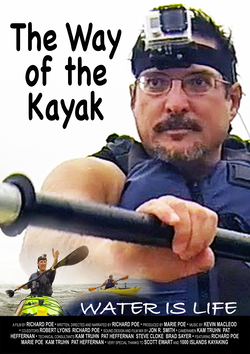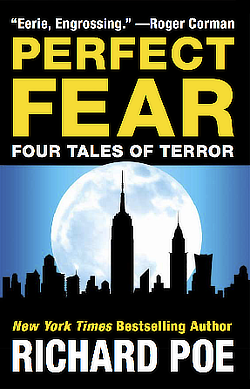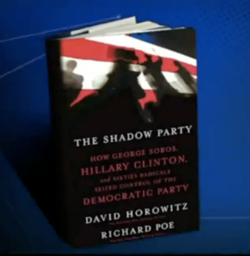Soros Fights Felony Conviction
|
by Richard Poe Monday, November 5, 2007 12:00 am Eastern Time |
Archives 2 Comments |
FOUR YEARS ago, leftist billionaire George Soros vowed to bring down President Bush, but failed. Now he is making another power play, this time in Europe. Soros knows Europe better than he does America. He may get what he wants this time; a reversal of his 2002 criminal conviction for insider trading.
On January 29, 2002, a French court convicted Soros of illegal trades in connection with a takeover attempt on a French bank. Soros appealed his conviction twice without success. Now he awaits his fourth trial at the European Court of Human Rights in Strasbourg. This time around, he is not leaving the decision to chance.
Soros ran afoul of French law in the late 1980s when he became embroiled in a turf war between socialist and conservative politicians for control of the largest private bank in France, Société Générale.
Formerly a state bank, Société Générale was privatized by conservative prime minister Jacques Chirac in 1987. With the reelection of Francois Mitterand as president in 1988, the socialists regained power and sought to reclaim all the government property Chirac had sold off.
Mitterand was realistic however. He knew that most of the privatized firms would remain private. So he did the next best thing. He arranged for cronies to buy them — businessmen friendly to the Socialist Party.
The socialists targeted Société Générale. They planned a friendly takeover of the bank, secretly facilitated by insiders, but cleverly disguised as a hostile takeover by outsiders. Thus the socialists would gain control of the bank, while allowing capitalist “corporate raiders” to take the blame in the press.
Mitterand’s finance minister Pierre Eugène Bérégovoy recruited investment banker Georges Pébereau to play the role of robber baron in the charade. Pébereau rounded up investors, luring them with promises that Mitterand’s government had guaranteed success.
Pébereau invited Soros to join the raiders, but Soros declined. He had a better idea for profiting from the upcoming acquisition.
When Pébereau’s raiders struck in November 1988, Soros was ready. His Quantum Fund had loaded up on cheap Société Générale stock in advance. As expected, the share price soared when the raid began. Soros dumped his shares, pocketing about $2.2 million in profit. Pébereau made money too, winding up with a 10-percent share of Société Générale. The socialist takeover faltered, however. Mitterand’s operatives failed to gain a controlling share of the bank.
French investigators began scrutinizing L’Affaire Société Générale in May 1990, but their probe stalled while Swiss authorities refused for six years to release critical evidence.
Several leading suspects died in the meantime. British media mogul Robert Maxwell was found floating dead in the Atlantic Ocean on November 6, 1991, after embarking on his yacht. Pierre Bérégovoy shot himself in the head — twice — on May 1, 1993. Lebanese banker Edmond Safra perished in a suspicious blaze set by unknown arsonists in his Monaco penthouse on December 3, 1999. Mitterand died of cancer on January 8, 1996.
In the end, only Soros was convicted. A Paris court found him guilty of insider trading on January 29, 2002. The Paris Court of Appeal ruled against him on March 24, 2005. The Cour de Cassation, France’s highest court, found him guilty once more on June 14, 2006.
Under French law, Soros could have been jailed for two years, but the French let him off with a $2.9 million fine.
Soros has only scorn for the court’s leniency however. He demands full vindication. While admitting that he profited from Pébereau’s raid, Soros insists that he broke no law.
“It is a bizarre thing because I was the only one who was found guilty when the whole of the French establishment was involved,” Soros complained to CNN on January 28, 2003.
While awaiting his next trial, Soros has busied himself buying influence among European elites.
At a speech in Brussels on November 20, 2006, Soros denounced America for lawless warmongering and praised Europe as “a model and motive force for a global open society”. He offered to finance Europe’s renaissance through his foundations, stating, “I am ready to support an Open Society Initiative for Europe”.
Next Soros launched the co-called European Council on Foreign Relations. Fifty dignitaries, including former presidents and prime ministers, have enrolled as members. The opening event will take place this Friday, November 9, at the German Foreign Ministry in Berlin.
Soros clearly aims to position himself as a kingmaker in Europe. Whether or not this tactic will influence his upcoming trial remains to be seen.








See reader comments at FreeRepublic.com:
Posted on 11/05/2007 3:56:07 PM PST